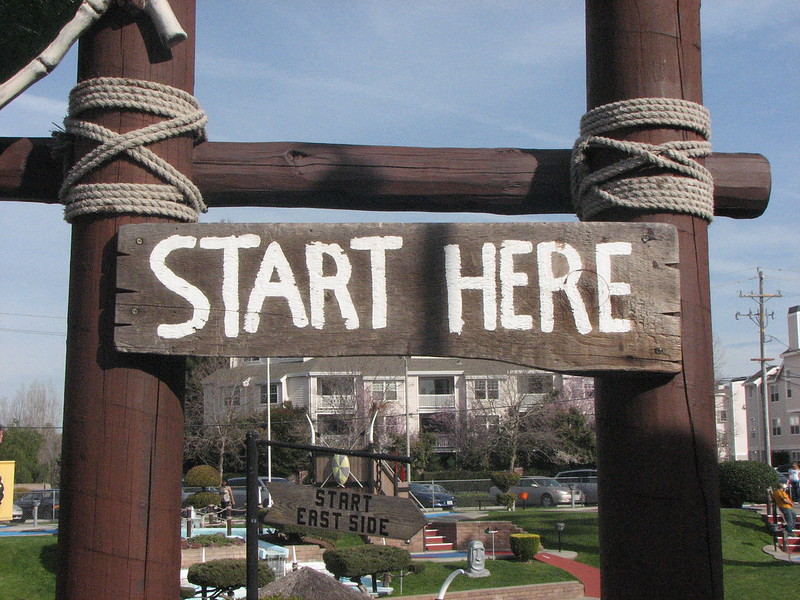Archive for January, 2021
Will you be remembered?
 100% agreement means there’s less than 100% truth. If, as a senior leader, you know there are differing opinions left unsaid, what would you do? Would you chastise the untruthful who are afraid to speak their minds? Would you simply ignore what you know to be true and play Angry Birds on your phone? Would you make it safe for the fearful to share their truth? Or would you take it on the chin and speak their truth? As a senior leader, I’d do the last one.
100% agreement means there’s less than 100% truth. If, as a senior leader, you know there are differing opinions left unsaid, what would you do? Would you chastise the untruthful who are afraid to speak their minds? Would you simply ignore what you know to be true and play Angry Birds on your phone? Would you make it safe for the fearful to share their truth? Or would you take it on the chin and speak their truth? As a senior leader, I’d do the last one.
Best practice is sometimes a worst practice. If, as a senior leader, you know a more senior leader is putting immense pressure put on the team to follow a best practice, yet the context requires a new practice, what would you do? Would you go along with the ruse and support the worst practice? Would you keep your mouth shut and play tick-tack-toe until the meeting is over? Would you suggest a new practice, help the team implement it, and take the heat from the Status Quo Police? As a senior leader, I’d do the last one.
Truth builds trust. If, as a senior leader, you know the justification for a new project has been doctored, what would you do? Would you go along with the charade because it’s easy? Would call out the duplicity and preserve the trust you’ve earned from the team over the last decade? As a senior leader, I’d do the last one.
The loudest voice isn’t the rightest voice. If, as a senior leader, you know a more senior leader is using their positional power to strong-arm the team into a decision that is not supported by the data, what would you do? Would you go along with it, even though you know it’s wrong? Would you ask a probing question that makes it clear there is some serious steamrolling going on? And if that doesn’t work, would you be more direct and call out the steamrolling for what it is? As a senior leader, I’d do the last two.
What’s best for the company is not always best for your career. When you speak truth to power in the name of doing what’s best for the company, your career may suffer. When you see duplicity and call it by name, the company will be better for it, but your career may not. When you protect people from the steam roller, the team will thank you, but it may cost you a promotion. When you tell the truth, the right work happens and you earn the trust and respect of most everyone. As a senior leader, if your career suffers, so be it.
When you do the right thing, people remember. When, in a trying time, you have someone’s back, they remember. When a team is unduly pressured and you put yourself between them and the pressure, they remember. When you step in front of the steamroller, people remember. And when you silence the loudest voice so the right decision is made, people remember. As a senior leader, I want to be remembered.
Do you want to be remembered as someone who played Angry Birds or advocated for those too afraid to speak their truth?
Do you want to be remembered as someone who doodled on their notepad or spoke truth to power?
Do you want to be remembered as someone who kept their mouth shut or called out the inconvenient truth?
Do you want to be remembered as someone who did all they could to advance their career or someone who earned the trust and respect of those they worked with?
In the four cases above, I choose the latter.
“cryptic.” by dfactory is licensed under CC BY 2.0
What should we do next?
 Anonymous: What do you think we should do next?
Anonymous: What do you think we should do next?
Me: It depends. How did you get here?
Anonymous: Well, we’ve had great success improving on what we did last time.
Me: Well, then you’ll likely do that again.
Anonymous: Do you think we’ll be successful this time?
Me: It depends. If the performance/goodness has been flat over your last offerings, then no. When performance has been constant over the last several offerings it means your technology is mature and it’s time for a new one. Has performance been flat over the years?
Anon: Yes, but we’ve been successful with our tried-and-true recipe and the idea of creating a new technology is risky.
Me: All things have a half-life, including successful business models and long-in-the-tooth technologies, and your success has blinded you to the fact that yours are on life support. Developing a new technology isn’t risky. What’s risk is grasping tightly to a business model that’s out of gas.
Anon: That’s harsh.
Me: I prefer “truthful.”
Anon: So, we should start from scratch and create something altogether new?
Me: Heavens no. That would be a disaster. Figure out which elements are blocking new functionality and reinvent those. Hint: look for the system elements that haven’t changed in a dog’s age and that are shared by all your competitors.
Anon: So, I only have to reinvent several elements?
Me: Yes, but probably fewer than several. Probably just one.
Anon: What if we don’t do that?
Me: Over the next five years, you’ll be successful. And then in year six, the wheels will fall off.
Anon: Are you sure?
Me: No, they could fall off sooner.
Anon: How do you know it will go down like that?
Me: I’ve studied systems and technologies for more than three decades and I’ve made a lot of mistakes. Have you heard of The Voice of Technology?
Anon: No.
Me: Well, take a bite of this – The Voice of Technology. Kevin Kelly has talked about this stuff at great length. Have you read him?
Anon: No.
Me: Here’s a beauty from Kevin – What Technology Wants. How about S-curves?
Anon: Nope.
Me: Here’s a little primer – Beyond Dead Reckoning. How about Technology Forecasting?
Anon: Hmm. I don’t think so.
Me: Here’s something from Victor Fey, my teacher. He worked with Altshuller, the creator of TRIZ – Guided Technology Evolution. I’ve used this method to predict several industry-changing technologies.
Anon: Yikes! There’s a lot here. I’m overwhelmed.
Me: That’s good! Overwhelmed is a sign you realize there’s a lot you don’t know. You could be ready to become a student of the game.
Anon: But where do I start?
Me: I’d start Wardley Maps for situation analysis and LEANSTACK to figure out if customers will pay for your new offering.
Anon: With those two I’m good to go?
Me: Hell no!
Anon: What do you mean?
Me: There’s a whole body of work to learn about. Then you’ve got to build the organization, create the right mindset, select the right projects, train on the right tools, and run the projects.
Anon: That sounds like a lot of work.
Me: Well, you can always do what you did last time. END.
“he went that way matey” by jim.gifford is licensed under CC BY-SA 2.0
Just start.
 You’re not missing anything. It’s time to start.
You’re not missing anything. It’s time to start.
Afraid to fail? Start anyway.
Don’t have the experience? Well, you won’t be able to say that once you start.
Just start. It’s time.
Don’t have the money? Start small. And if that won’t work, start smaller.
Start small, but start.
Worried about what people might say? There’s only one way to know, so you might as well start.
You’re not an imposter. It’s time to start.
Waiting isn’t waiting, it’s a rationalization to block yourself from starting.
Here’s a rule: If you don’t start you can’t finish.
The only thing in the way of starting is starting.
The fear of success is the strongest stopper of starting. Be afraid of success, and start.
There’s never a good time to start, but there’s always a best time – now.
Worried about the negative consequences of starting? Be worried, and start.
Don’t think you have what it takes? The only way to know for sure is to start.
There’s no way around it. Starting starts with starting.
“Golfland start” by twid is licensed under CC BY-SA 2.0
Our behavior is our choice.
 Disagreement is fine as long as it’s founded on mutual respect. There’s no place for violence
Disagreement is fine as long as it’s founded on mutual respect. There’s no place for violence
Both sides don’t have to like each other to work together, but nonviolence must carry the day.
Our differences may be significant, but never large enough to justify violence.
We have more in common than we realize. When we hold onto that we create space for nonviolent solutions.
We all breathe the same air, we all want the best for our family, and we all want the best for our county. When we remember that, there’s no place for violence.
Violence is a choice, but it’s an unskillful one.
Nonviolence is a choice, and it’s a skillful one.
In all that I do, I will choose nonviolence.
What will you choose?
“Ghandi cor 02” by Luiz Fernando Reis MMF is licensed under CC BY 2.0
 Mike Shipulski
Mike Shipulski